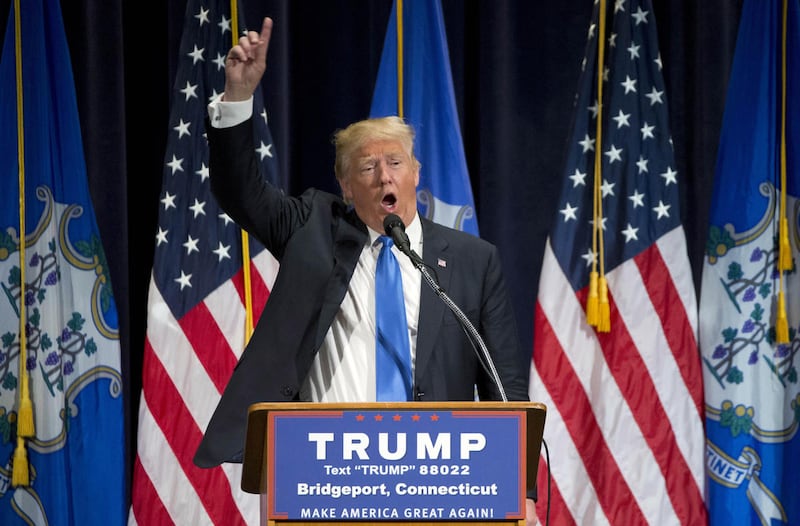Does it matter whether Americans live in a republic or a democracy?
It does! The two forms of government are as starkly different as are the rule of law and the rule of men.
Everyday citizens may not always appreciate this distinction. We gloss over it with descriptions of the United States as a "representative democracy" or a "democratic republic."
Yet at this very moment, nationally and here in Utah, some attack political parties or political processes on the grounds that they are "undemocratic."
They say this as a form of complaint. They should instead say it as a compliment.
One who makes this complaint is columnist Richard Davis, arguing that the selection process for the delegates to national political parties does not "reflect the majority will of the state's primary or caucus vote."
This could happen either because of states with winner-take-all rules in Republican primaries, the Democratic Party's notion of a "superdelegate" party leader or representative, or even — in Davis' view — the fact that most regular delegates are unbound on the second ballot at their conventions.
To use a phrase from software development that should at this point be applied to the role of political parties in government: This isn't a bug; it's a feature!
Writing in Slate, William Saletan dispatches the variant of this argument being made by the campaigns of Republican front-runner Donald Trump and Democratic runner-up Bernie Sanders. Trump is now complaining about Sen. Ted Cruz's success in securing supportive delegates attending the national convention. And Sanders says he has "serious problems" with superdelegates' ability to step in — without being elected or appointed as delegates — and vote for an "establishment" candidate like Hillary Clinton.
"Let’s not pretend that everyone deserves a say in choosing the nominees," said Saletan. "Parties are entitled to privilege their members and choose candidates who best represent their ideas. Trump and Sanders don’t necessarily fit the bill."
We've also heard similar complaints about Utah's system of caucuses. We're one of only seven states with a party conventions/primary system.
Before the 2014 compromise legislation (SB 54), which remains quite controversial, a candidate winning 60 percent of delegates' votes would avoid a primary and proceed directly to the general election. A signature-gathering path now allows candidates to appeal to delegates, or directly to voters, or both.
But some still decry the influence of party delegates. A report of the Utah Foundation released Thursday said Democratic delegates are more liberal, and Republican delegates more conservative, than their respective party members. "This mismatch seems to warrant continued conversation regarding how well the convention system represents Utahns," the report concludes.
Let's put to rest this notion that democracy is the touchstone. It is not — for reasons that were well-articulated in the Federalist Papers 229 years ago.
In Federalist 10, James Madison homes in on the perils of direct democracy. Representative government better controls against "the violence of faction." It does this by helping to thwart tyranny of the minority and tyranny of the majority.
I disagree with those who see American political parties as a type of "faction" that Madison decries.
Factions are more like interests, and even passions. Said Madison: "A landed interest, a manufacturing interest, a mercantile interest, a moneyed interest, with many lesser interests, grow up of necessity in civilized nations, and divide them into different classes, actuated by different sentiments and views. The regulation of these various and interfering interests forms the principal task of modern legislation. ..."
And his argument for representative democracy over direct democracy is powerful and original: No man can be both a judge and a party to a cause at the same time. Can, therefore, a man judge his own cause by voting for legislation that serves his particular interest?
Both the democratic and republican principles can overcome a "factional" minority. But it takes a republican form of government to thwart a "popular government (from) sacrific(ing) to its ruling passion or interest both the public and the rights of other citizens."
Think of it in terms of the checks and balances that so brilliantly anchor our government. Different powers are vested within the legislative, executive and judicial branches. In an equally significant fashion, the federal government is limited to those enumerated powers granted it by the Constitution, while remaining powers are vested in the states and the people.
Federalist 10 established an additional check and balance: Elected representatives, or elected delegates, against the populace a whole.
This refinement of public views, by "passing them through the medium of a chosen body of citizens, whose wisdom may best discern the true interest of their country,” is the bedrock for our form of representative government and for the winnowing role performed by political parties.
Let us cherish and enable — not diminish and demean — the representative role played by political parties.
Drew Clark is of counsel at the law firm of Best Best and Krieger, where he focuses on technology, media and telecommunications. Connect on Twitter @drewclark or via email at drewclark@bbklaw.com.



